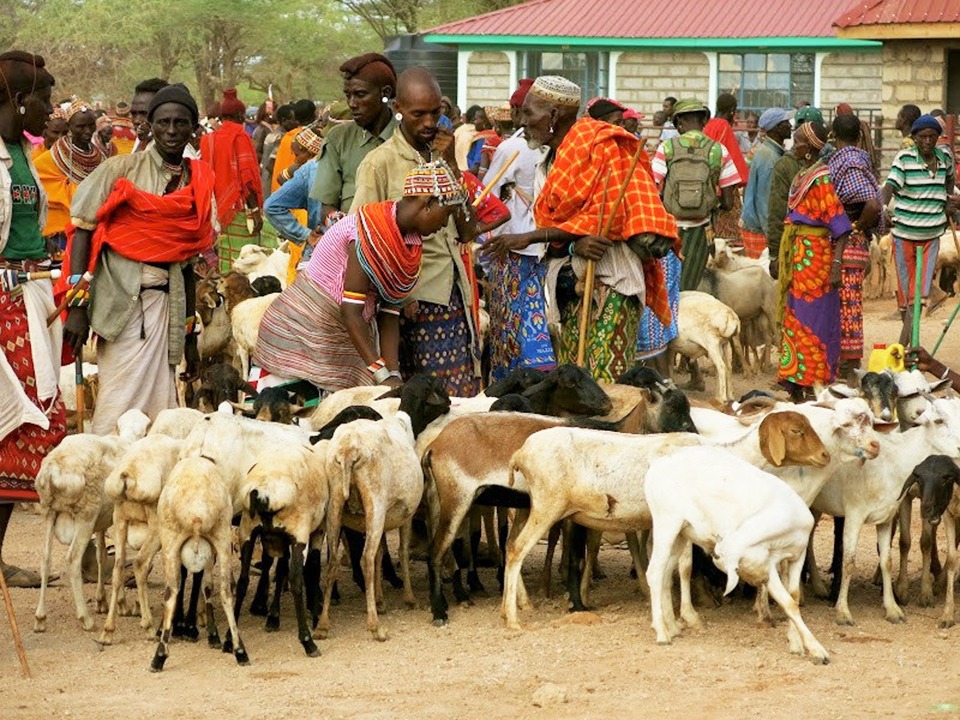Business
Livestock Prices Hit Ksh5,000 Amid Ongoing Famine

Prices of livestock in drought-stricken areas have dropped by nearly 90 percent as farmers rush to dispose of their animals before they starve to death.
A mature cow that would have fetched a farmer more than Ksh50,000 six months ago at the Kajiado Ibisil Market can only sell at Ksh5,000 leaving most herders counting losses as drought hits hard.
The drop in prices follows a predictable pattern that gets farmers and policymakers flat-footed every drought season, which ends with farmers selling their livestock at throw-away prices, raising concerns about the country’s disaster preparedness.
This year’s famine promises to be even more severe after annual rains failed for two consecutive years due to climate change which has diminished pasture and dried up seasonal rivers.
Livestock deaths set the stage for a surge in beef prices in the coming months due to a shortage of supplies which will likely complicate plans to increase Kenyan livestock exports to 500,000 annually.
James ole Nkapapa, Ibisil slaughterhouse chairman, said low livestock prices had affected meat supply and that most herders were ferrying their animals to the slaughterhouse, which also serves as a livestock market every Friday, in large numbers against few customers.
“The most drought-affected animals are selling between Ksh3,000-Ksh5,000. Herders are grappling with persistent drought killing their animals. If it doesn’t rain soon, mass livestock deaths will be witnessed,” he said.
Mature goat and sheep prices have dropped marginally, selling between Ksh5,000-Ksh7,000 from Ksh9,000 six months ago.
However, hay traders are enjoying a boom selling a bale between Ksh300-Ksh500. Dozens of lorries selling hay are placed in strategic locations in the vast county. Most herders are unable to buy grass for their large herds.
“It’s untenable to be able to feed more than 200 herds of cattle with the expensive hay. We are at the bleak of losing our pride- livestock,” said John Toimasi, a livestock farmer while pleading to the Kenya Meat Commission (KMC) to fast-track the livestock offtake program.
The pasture shortage witnessed in the region has prompted livestock-wildlife conflict over the little pasture left with wild animals roaming freely across the villages. Attempts by herders to invade Amboseli, Chyulu hills and Tsavo East game park for pasture have been met with resistance by the Kenya Wildlife Service (KWS).
Recently, Kajiado KWS warden Vitalis Ochola said no herder will be allowed into the park because of drought insisting the parks will be highly protected.
“No livestock will be allowed into the parks. Even the head of state cannot order livestock to be allowed into the back. I have worked in many parks, and it has never happened,” Mr. Ochola said.







